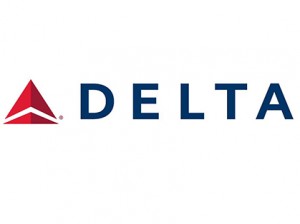Delta Introduces Enhanced Requirements For Customers Traveling With Service or Support Animals Effective March 1
Delta carries more than 250,000 service and support animals annually, an increase of nearly 150 percent since 2015
Delta Air Lines (NYSE: DAL) is taking steps to further protect its customers, employees and service and support animals by implementing advance documentation requirements for those animals. This comes as a result of a lack of regulation that has led to serious safety risks involving untrained animals in flight. The new requirements support Delta’s top priority of ensuring safety for its customers, employees and trained service and support animals, while supporting the rights of customers with legitimate needs, such as disabled veterans, to travel with trained animals.
Delta carries approximately 700 service or support animals daily – nearly 250,000 annually. Putting this into perspective, Delta carries more than 180 million passengers annually. Customers have attempted to fly with comfort turkeys, gliding possums known as sugar gliders, snakes, spiders and more. Ignoring the true intent of existing rules governing the transport of service and support animals can be a disservice to customers who have real and documented needs. Delta has seen an 84 percent increase in reported animal incidents since 2016, including urination/defecation, biting and even a widely reported attack by a 70-pound dog. In 2017, Delta employees reported increased acts of aggression (barking, growling, lunging and biting) from service and support animals, behavior not typically seen in these animals when properly trained and working.
New Procedures & Updated Requirements
In compliance with the Air Carrier Access Act, Delta provides in-cabin travel for service and support animals without charge. The guidelines, effective March 1, require that all customers traveling with a service or support animal show proof of health or vaccinations 48 hours in advance. In addition to the current requirement of a letter prepared and signed by a doctor or licensed mental health professional, those with psychiatric service animals and emotional support animals will also need to provide a signed document confirming that their animal can behave to prevent untrained, sometimes aggressive household pets from traveling without a kennel in the cabin. These measures are intended to help ensure that those customers traveling with a trained service or support animal will no longer be at risk of untrained pets attacking their working animal, as has previously been reported.
“The rise in serious incidents involving animals in flight leads us to believe that the lack of regulation in both health and training screening for these animals is creating unsafe conditions across U.S. air travel,” said John Laughter, Delta’s Senior Vice President – Corporate Safety, Security and Compliance. “As a leader in safety, we worked with our Advisory Board on Disability to find a solution that supports those customers with a legitimate need for these animals, while prioritizing a safe and consistent travel experience.”
In developing the updated requirements, Delta solicited the feedback and input of its 15-member Advisory Board on Disability, a group of disability advocates established more than a decade ago and composed of diverse Delta frequent flyers with a range of disabilities.
Air Carrier Access Act
As the Title 14 Code of Federal Aviation Regulations § 382.117 dictates, “you must permit the service animal to accompany the passenger with a disability at any seat in which the passenger sits, unless the animal obstructs an aisle or other area that must remain unobstructed to facilitate an emergency evacuation.” However, untrained animals that have been misidentified as service and support animals are regularly reported to occupy seats, stretch across the aisles and move throughout the cabin during flight, often without restriction. That same regulation also requires that airlines determine whether any factors preclude travel in the cabin by a service animal. Such factors include: “whether the animal would pose a direct threat to the health or safety of others” and “whether it would cause a significant disruption of cabin service.”
“We are committed to consistently improving our policies, prioritizing the safety of all Delta customers and employees,” said Laughter. “We have received extensive customer feedback through calls, emails and social posts – many from among those within the disability community – urging Delta to take action. This new policy is our first step in better protecting those who fly with Delta with a more thoughtful screening process.”
What Customers with Service and Support Animals Need To Know
Any customer traveling with a service or support animal on/after March 1 will need to meet the new requirements as outlined below:
Traveling with a trained service animal
- Customers traveling with a trained service animal will be required to submit a signed Veterinary Health Form and/or an immunization record (current within one year of the travel date) for their animal to Delta’s Service Animal Support Desk via Delta.com at least 48 hours in advance of travel.
Traveling with an emotional support animal or psychiatric service animal
- Customers traveling with an emotional support animal or psychiatric service animal will be required to submit a signed Veterinary Health Form and/or an immunization record (current within one year of the travel date), an Emotional Support/Psychiatric Service Animal Request form which requires a letter prepared and signed by a doctor or licensed mental health professional, and a signed Confirmation of Animal Training form to Delta’s Service Animal Support Desk via Delta.com at least 48 hours in advance of travel.
Delta is creating a Service Animal Support Desk for customers traveling with service and support animals to improve their travel experience and ensure they receive excellent customer service. This desk will verify that the above documentation is received and confirm the customer’s reservation to travel with the animal, prior to arrival at the airport. If a form is not completed, a representative will communicate with the customer via e-mail to request the missing or incomplete items.
Delta does not accept exotic or unusual service or support animals. Additional information on types of accepted animals and other questions related to traveling with service and support animals is available here.
Short URL: https://caninechronicle.com/?p=138694
Comments are closed












